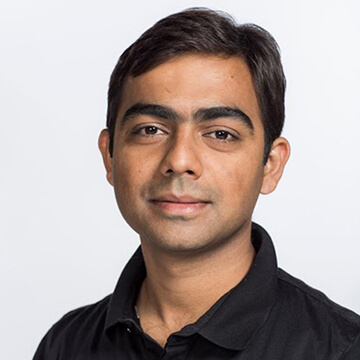
Afforestation is a term which is familiar to all earth habitants, but only few earthlings follow and contribute towards planting of lost trees and one such aspiring individual is Shubhendu Sharma.
Industrial engineer Shubhendu Sharma, founder and director of Afforest, was working at Toyota in India when he met Japanese forest expert Akira Miyawaki, who'd arrived to plant a forest at the factory, using a methodology he'd developed to make a forest grow ten times faster than normal. Fascinated, Sharma interned with Miyawaki, and grew his first successful forest on a small plot behind a house. In December 2009 we started studying, researching and documenting the Miyawaki Method. This resulted in SOP (Standard Operating Procedure) documents on how to create a forest using the Miyawaki Method. To test his skill and knowledge, Shubhendu independently created his first forest in Uttarakhand (India) using the Miyawaki method, in November 2010
Today, his company Afforest promotes a standardized method for seeding dense, fast-growing, native forests in barren lands, using his car-manufacturing acumen to create a system allowing a multilayer forest of 300 trees to grow on an area as small as the parking spaces of six cars -- for less than the price of an iPhone. Started in January 2011, Afforest presented their work for the first time at the Bhoomi conference in Bangalore with a mission to bring back our native forests and has helped grow forests at homes, schools and factories. After showcasing Afforest’s mission and vision at various forums, Shubhendu got his first project as a company to create a backyard forest in Whitefield Bangalore. He saw a gradual improvement in air quality, an increase in biodiversity -- and the forests even generate fresh fruit. Afforest is at work on a platform that will offer hardware probes to analyze soil quality, allowing the company to offer step-by-step instructions for anyone who wants to grow a native forest anywhere in the world.While he was sharing his accolades, fame and achievements, in October 2012, Shubhendu was awarded the INK Fellowship and given a chance to present Afforest’s work at the INK conference, which came to him to move another step forward. In September 2013, Shubhendu was awarded the Ashoka Fellowship and Afforest was recognised as a social enterprise. Following year in 2014, he was awarded the TED Fellowship and he spoke at the TED conference in Vancouver, Canada. After the talk was released online, Afforest received major international attention. In March 2015, he proudly received the Namma Bengaluru award for outstanding contribution to Bangalore City and he kept on with all his achievements. His first success, as he calls it, came when he was offered the first International community based forest creation project in Netherlands, Europe in 2015 and then continued his journey to Japan and Singapore.
“Continue to solve problems irrespective of end results. Don’t stop when faced with failure and hurdles”, Afforest is a 10-year old company, promoting a standardized method for seeding dense, fast-growing, native forests in barren lands, using his car-manufacturing acumen to create a system allowing a multilayer forest of 300 trees to grow on an area as small as the parking spaces of six cars -- for less than the price of an iPhone. Afforest has helped grow forests at homes, schools and factories. Sharma seen improvement in air quality, an increase in biodiversity -- and the forests even generate fresh fruit. Afforest is at work on a platform that will offer hardware probes to analyze soil quality, allowing the company to offer step-by-step instructions for anyone who wants to grow a native forest anywhere in the world.
He believes “With time, everything will be better”, which he strongly believes life is all about. To grow indigenous afforestation, one needs to strongly connect to the roots and understand the core of history of the species and identify them. He clearly explained about how one can grow plants and trees in their own backyard, following certain steps such as identifying the potential natural vegetation of any region, then prepare the soil for the urban forest, water the plants to control evaporation, the further it takes 2 to 3 years for it grow and then after a long wait of 10 years, end up getting a thick and dense forest with fruits and flowers.
“If humans want to do something, don’t wait for anyone or anything, put down your hands onto it”, is what Shubendu believes in; and with that believe and faith, today she has a huge support system, who have indeed joined hands to promote afforestation and planting of more trees, thus creating smaller dense urban trees. Today, he proudly owns a company along with 13 more inspiring people who are the backbone of the company.
His biggest challenge came when he had to do the process of afforestation in an extremely difficult climatic zone, Iran in September 2016 and Creation of a wooded grassland at a high altitude cold desert, which proved to be biggest lessons and a path-breaking step towards the mission of international acclaim.
Nature is the best example of life and we do resemble a lot of incidents from nature. Just like nature works in limited resources, we should follow the same and practise the cyclic method and not the linear design. Afforestation believes in Native.Wild. Forever and strives to create more 1000 urban forests and plant trees and spread the word of afforestation across cities, towns and countries in the next 10 years, and be a part of a millennial change, where we all can contribute individually. Moreover, it just takes a small sapling to grow, which when nurtured to the fullest can grow into a full-fledged tree, shrub or flowering plant. All it takes, is little care and love to nature.
By : Ellora Ghosh
